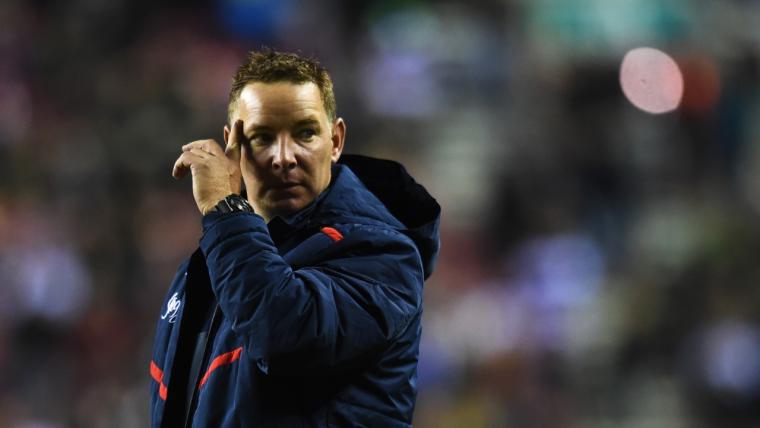Sinner in the Vatican: tennis fan Pope Leo XIV meets Jannik
Italian world number one had a private audience with the newly elected pontiff and gave him a tennis racket
The Italian tennis player Jannik Sinner has met Pope Leo XIV, a few days after the newly elected pontiff, who is passionate about tennis, confessed that he wouldn’t want to face a match with the world number one.
Along with his parents, Sinner, who is currently taking part in the Italian Open tennis tournament in Rome, had a private audience with Leo on Wednesday in a room next to the Vatican’s Paul VI Hall.
In a video shared by Vatican News, the Holy See’s official media service, Sinner, 23, gives the pope a tennis racket before handing him a ball and asking him to play.
Looking around the room, Leo, who in the past has described himself as an amateur tennis player, responds: “Here we’ll break something. Best not to!
Earlier this week, in response to a question from a journalist about whether he would take part in a charity tennis match, the pontiff joked that he wouldn’t want to face Sinner, at least not from behind the net.
Just don’t bring Sinner, he said, making a pun in reference to the tennis star’s surname.
The Sinners were joined at the audience by Alberto Binaghi, the president of the Italian tennis federation. Binaghi presented Pope Leo, 69, with an honorary membership.
Sinner is playing in the tennis tournament, which is being held at the Foro Italico, not far from the Vatican, after returning to the game following a three-month doping ban.
Speaking during a press conference this week, Sinner said he thought it was a good thing to have a pope who liked the sport.
Pope Leo, formerly known as Cardinal Robert Prevost, last week became the first US cleric to lead the Roman Catholic church.
On Sunday he will host his inauguration mass as pontiff in St Peter’s Square, an event that will be attended by world leaders and royals. The tennis tournament’s finals take place on the same day.
For 204 years, the Guardian has pursued independent journalism with purpose, rigour and resolve. But now, in 2025, we face new kinds of challenges, of a type largely unimaginable in the past.
The economic foundations of the news industry have been dismantled by powerful technology platforms. Over the past two decades, thousands of newspapers around the world have closed or shrunk beyond recognition. In their place, social media networks have flooded public discourse with misinformation.
At the same time, journalists are under growing political pressure. From exclusion and censorship to harassment and violence, those who seek to hold power to account are being silenced. Authoritarian and anti-democratic leaders are working to weaken press freedom and take control of the information space.
This is not a distant threat. It is happening now. And it strikes at the heart of truth, accountability and democracy.



